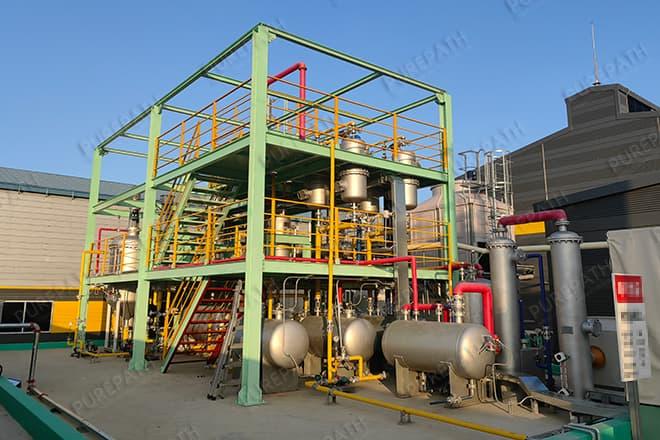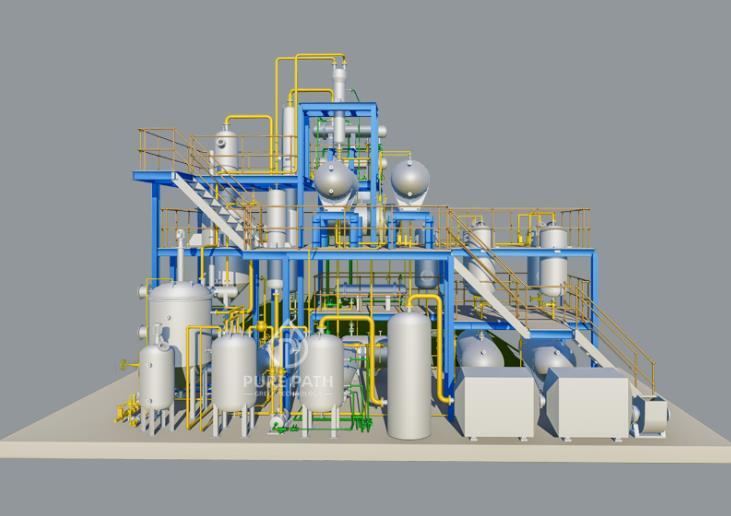The conversion of waste oil into diesel fuel holds great promise in addressing environmental concerns and reducing our dependence on traditional fossil fuels. However, this innovative process is not without its challenges. In this article, we will explore the hurdles and obstacles faced in waste oil to diesel conversion and the innovative solutions that are helping us overcome them.
The Promising Potential of Waste Oil Conversion
Waste oil, generated from various sources such as restaurants, industrial processes, and automotive maintenance, is often seen as a problem due to its potential environmental hazards. Waste oil contains impurities, contaminants, and degradation products that make it unsuitable for direct use as fuel. Converting it into high-quality diesel fuel not only addresses the problem of waste disposal but also provides a valuable energy resource.
Key Challenges
- Feedstock Quality and Variability
One of the foremost challenges in waste oil conversion is the inconsistency in the quality and composition of the feedstock. Different sources of waste oil can contain varying levels of impurities, water content, and contaminants, making it essential to develop conversion processes that can accommodate these variations.
- Efficiency and Energy Consumption
The conversion of waste oil into diesel fuel can be energy-intensive. Developing and optimizing conversion processes to be more energy-efficient is a significant challenge. Reducing the energy input required for the conversion is not only cost-effective but also aligns with sustainability goals.
- Waste Oil Collection and Logistics
Efficiently collecting waste oil from various sources can be challenging, requiring well-organized logistics and cooperation from suppliers. Without a reliable supply of waste oil, the conversion process can't operate at capacity.
- Environmental Impact
Some waste oil conversion processes may produce emissions or waste byproducts that need to be managed properly to minimize their environmental impact. Striking a balance between waste reduction and minimizing the carbon footprint is a challenge.
- Regulatory Compliance
Navigating the regulatory landscape for waste oil conversion can be complex. Adhering to environmental regulations, safety standards, and permits is essential for the responsible operation of waste oil to diesel conversion facilities.

Innovative Solutions and Strategies
Advanced Filtration and Pre-Treatment: To address feedstock variability and quality issues, advanced filtration and pre-treatment methods have been developed. These techniques remove impurities, water, and contaminants, resulting in a more consistent and suitable feedstock.
- Catalytic and Thermal Processes
Modern waste oil conversion technologies, such as catalytic and thermal processes, have improved energy efficiency and reduced environmental impact. These processes require less energy input and produce fewer emissions.
- Innovative Waste Oil Collection Models
Collaborative efforts between waste oil producers, collection companies, and conversion facilities have improved waste oil collection logistics. Creative models, such as partnerships with restaurants and local businesses, ensure a consistent supply of waste oil.
- Waste Minimization and Byproduct Utilization
Waste oil conversion facilities are increasingly focused on minimizing waste and finding valuable uses for byproducts. For example, the ash and residues from the conversion process can be used in construction materials or other applications.
- Continuous Research and Development
Ongoing research and development efforts are crucial to overcoming challenges in waste oil to diesel conversion. Innovations in catalysts, process engineering, and process control systems are continually improving efficiency and reducing environmental impact.
Conclusion
While waste oil to diesel conversion faces several challenges, innovative solutions are continually emerging. From improved feedstock handling to more efficient conversion processes, the industry is making strides toward more sustainable and eco-friendly solutions. As we confront environmental concerns and the need for cleaner energy sources, waste oil conversion offers a promising path forward, demonstrating that challenges can be turned into opportunities for progress and innovation.
